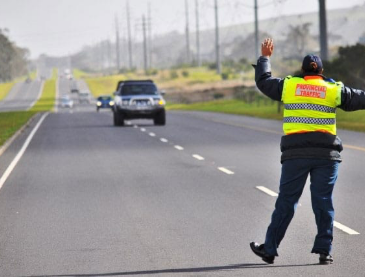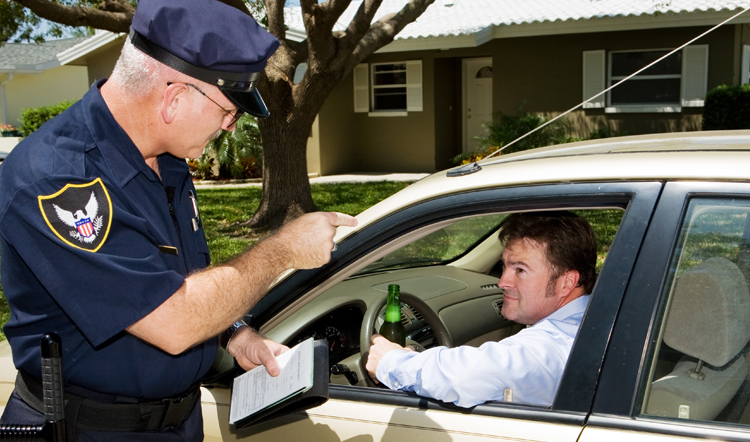In comparison to felonies, misdemeanor offenses are considered to be less serious crimes. Despite the fact that they are “less serious,” misdemeanors can still carry penalties that include a sentence of up to one year in a local county jail.
Going to Jail for a Misdemeanor in Kentucky
In the state of Kentucky, a misdemeanor is a class of offense that carries a potential sentence of up to one year in a county or local jail. There are two classes of misdemeanors – Class A and Class B – with Class A being more serious than Class B.
- Class A Misdemeanor – Up to one year in jail.
- Class B Misdemeanor – Up to 90 days in jail.
What is a Misdemeanor?
The most serious crimes you can commit are felonies, which can result in criminal charges, lengthy prison sentences and massive fines. Felonies include crimes such as rape, murder, kidnapping and burglary. But what about crimes that aren’t as serious? These crimes are known as misdemeanors. Most misdemeanor offenses result in modest fines, brief jail sentences (if any), and community service. For instance, if you are slightly over the legal limit during a DUI stop, you maybe able to avoid jail time altogether. However, if you are so intoxicated that the government feels you were wantonly endangering the lives of other drivers, you could be charged with a felony and face significant time in prison. In Kentucky, misdemeanors are prosecuted in District Court.
Misdemeanor Charges In Kentucky
Class A Misdemeanor
Criminal charges classified as Class A misdemeanors in the state of Kentucky can result in a maximum jail term of one year, a maximum fine of $500, or both. Class A misdemeanors include, but are not limited to:
- Theft by unlawful taking, less than $1,000.
- Assault in the Fourth Degree
- Violation of a restraining order
- Wanton Endangerment in the Second Degree
Class B Misdemeanor
Less serious crimes are classified as Class B misdemeanors and are punishable by a maximum of 90 days in jail, a fine of no more than $250, or both a jail sentence and a fine. Even lower than Class B misdemeanors are what is referred to as “violations,” which is a class of infractions carry no jail time and a punishment of up to $250. Class B misdemeanors include, but are not limited to, the following offenses:
- Public Intoxication
- Criminal Trespass in the Third Degree
- Criminal Mischief in the Third Degree
- False Swearing
Can a Drug Crime Be a Misdemeanor?
In Kentucky, the possession of controlled substances without a prescription is unlawful. The type and amount of controlled substances in your possession will determine the charges and penalties you face. For example, a small amount of marijuana will result in a misdemeanor charge, while a small amount of fentanyl will result in a felony charge.
Going to Jail For a Misdemeanor in Kentucky
In Kentucky, misdemeanors are punishable by up to a year in jail and are regarded as less serious than felonies. Felony convictions carry time in state prison, unlike misdemeanor crimes which carry time in a county jail. But the answer to the question is yes, it is possible to go to jail for a misdemeanor in Kentucky.
Can I Get Probation for a Misdemeanor?
Yes. There are two types of probation – supervised and unsupervised.
Supervised probation involves checking in and staying in touch with a probation officer, and often includes some sort of requirement, such as anger management classes or drug testing. “Unsupervised probation” may not include a probation officer at all. If you commit any criminal offense while on probation, your probation could be revoked by the Judge. If your probation is revoked, you will be forced by the Court to serve the remainder of your sentence (the part that was “probated”) in jail.
The 3 Stages of the Criminal Court Process for a Misdemeanor
1. Misdemeanor Arraignment
Your arraignment is simply a court appearance where you are formally presented with the charge against you and asked to enter a plea. 99% of the time, you will enter a plea of “Not Guilty” at the arraignment. You will receive a return date for a “pretrial conference.”
What Happens If I Plead Not Guilty?
We are often asked if pleading “Not Guilty” will result in harsher penalties down the road. The answer is no. The Commonwealth expects clients represented by attorneys to enter a plea of not guilty, as this allows you the time to receive and review the evidence against you before making a decision as to how to proceed.
2. Pretrial Conferences
A pretrial conference (sometimes referred to as status hearings) are simply court appearances in which the prosecution and your attorney will discuss any outstanding evidentiary or discovery issues, any plea bargain offers, and a general plan on how to proceed with the case.
Eventually, your case will either be set for entry to a negotiated plea or scheduled for trial.
Appearing at the Pretrial Conference
Unless told otherwise by your attorney, you should plan to attend all court dates. There are some counties in Kentucky, such as Fayette County, that do not necessitate your appearance at every pretrial conference.
3. Trial
If the matter cannot be resolved by agreement or dismissal, the case can proceed to trial. You can choose to have a jury (for misdemeanors, it is a jury of 6) or a sole Judge decide your case. Since a misdemeanor is a criminal case, the prosecution has the burden and must prove your guilt beyond a reasonable doubt. If you have a jury trial, the jury must be unanimous.
Getting a Misdemeanor Expunged in Kentucky
Generally speaking, the Commonwealth of Kentucky allows for misdemeanors to be expunged, provided that you have no new charges and your petition is filed no sooner than five (5) years after your sentence or probation is completed.
Are you looking for a criminal defense lawyer in Lexington, Kentucky? Save time and find the reliable team you need today. You deserve a caring and effective defense. Hire a team that you know has your back!


